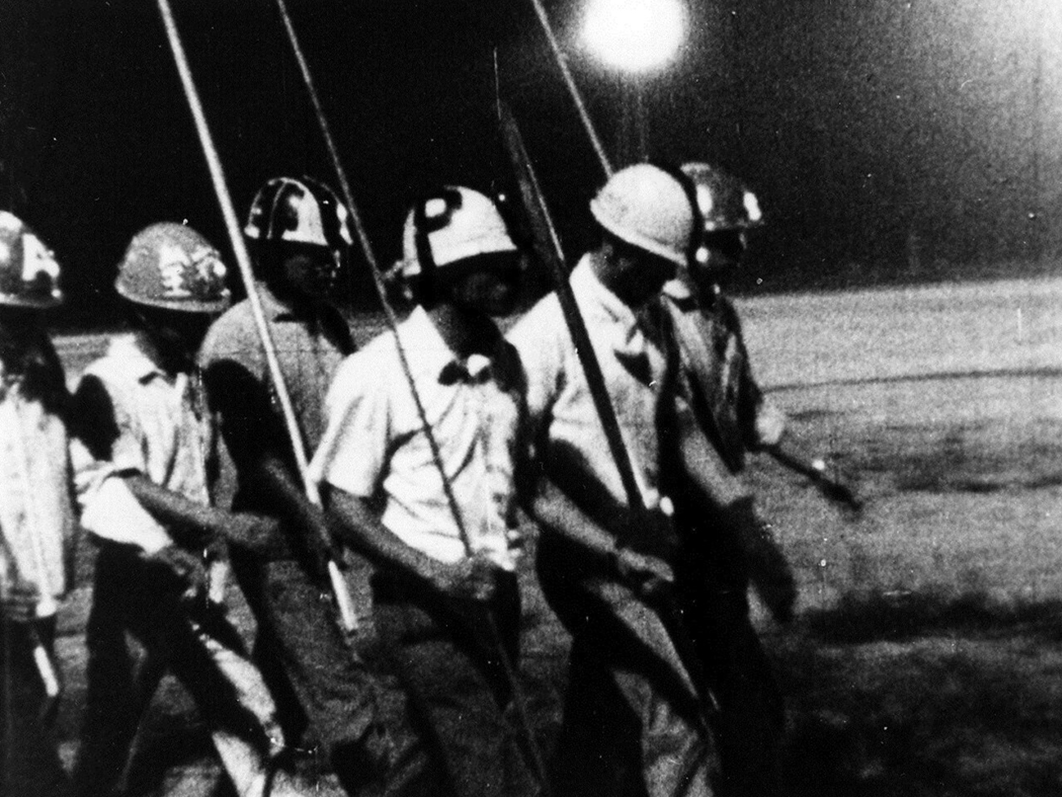
Aaron Gerow: This is a question relating to style. The dual quality, as you said, both keeping a distance and having a great interest in the main subject – someone like Takita Osamu in Pre-Partisans – is a part of your film style. In other films, while using close ups extremely well, you also shoot interviews in a long shot where you yourself appear on screen. Do you think the two are related?
Noriaki Tsuchimoto: Well, this probably won't answer your question but I do like editing. In the editing room I put the brakes on my subjectivist tendencies. Or maybe it's just that I want to take long shots as a form of expressing self-criticism. When I appear on screen in an interview, there's a psychology of wanting to be seen objectively: I really like close ups, but visually there's a violent, compulsory power to them. That's the frightening power of film: it may be odd to say so, but it has a fascist feel to it. That's why, by using a long shot, I'm able to return to a critical point of view. On the other hand you could say I do it because I know about my bad habit of being taken in by the power of close ups.1
“This film is perhaps the best documentary made, anywhere, about the student protests of the 1960s. Tsuchimoto was the only filmmaker or journalist allowed to witness the secret workings of an ultra-radical splinter group at the prestigious Kyoto University (alma mater of Oshima Nagisa). As Ogawa has done in Forest of Pressure, Tsuchimoto virtually lived with his subjects during the course of the shoot. Tsuchimoto, however, emerges as more even-handed than Ogawa toward his subjects, more dispassionate as a filmmaker. This is probably a function of the Partisan group’s overt desire for direct, violent confrontation with the authorities. While Tsuchimoto himself does not necessarily share his subjects’ views on the efficacy of violence, he does convey the honesty and intensity of the group members themselves.”
David Desser2
- 1Aaron Gerow, “Documentarists of Japan, No. 7 Tsuchimoto Noriaki,” Documentary Box 8 (Yamagata: YIDFF Publications, 1995) 6-14.
- 2Via Courtisane Festival 2019 program.

